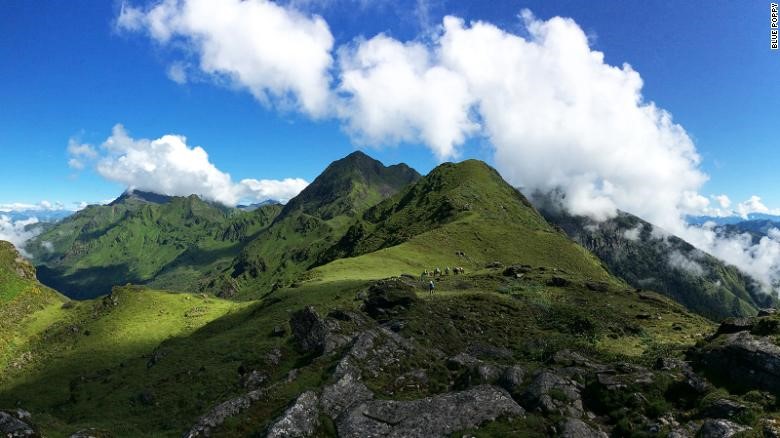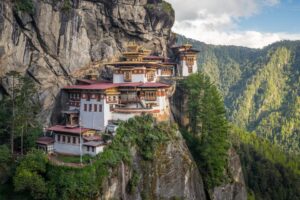
The “Land of the Thunder Dragon” Aims for Happiness
Bhutan – the “Land of the Thunder Dragon” (or Druk Yul in Bhutanese) – is a small landlocked country in Eastern Asia, on the edge of the Himalayas. The kingdom’s government, presiding over about 770,000 people, has but one aim – ensuring that its citizens are happy and well.
To do so, it has created a “Gross National Happiness Index” that goes far beyond the country’s actual happiness, to measure the country’s progress holistically, in terms of its sustainable development.
The country’s Prime Minister, Lotay Tshering, is a doctor. He says he joined politics mainly to see if he could affect some policy changes: “With the stroke of my surgical blade, I treat one patient. With the stroke of a pen I can treat the whole nation.”
Gross National Happiness
While Bhutan is not the happiest country in the world (ranking 95th out of 156 countries in the 2019 World Happiness Report), it is striving to climb up the list. The country is impoverished and mostly agricultural, so bringing economic and social equity is the main challenge.
The Centre for Bhutan and GNH Studies administers Bhutan’s Gross National Happiness surveys, measuring nine key areas of happiness every five years: psychological well-being, health, education, good governance, ecology, time use, community vitality, culture and living standards. It has conducted surveys in 2010 and 2015, another is due later this year.
Tshoki Zangmo, a researcher at the Centre, says that the country has seen improvements in living standards, health, access to health and education. At the same time, psychological well-being and trust indicators have been deteriorating. The country is vulnerable to climate change, given its high-mountain environment, so a focus on sustainable development makes sense.
We in Bhutan are very unique; our democracy is very, very unique … in the sense we all are grounded very strongly by our national values. We do not put personal interest ahead of national interest.
When we say Gross National Happiness, it is not the celebrative ‘Ha ha — Ho ho’ kind of happiness that we look for in life. It only means contentment, control of your mind, control of wants in your life. Don’t be jealous with others, be happy with what you have, be compassionate, be a society where you can be more than happy to share.
Our king rightly calls Gross National Happiness as development with values. If the policy does not have a good amount of happiness index, if the policy is not every environment friendly, if the policy will not be able to ensure that it will result in the well-being of Bhutanese, that policy will never be approved in the country. — Bhutan Prime Minister Lotay Tshering
A clear vision leads to clear success
Tshoki Zangmo adds that “our vision is clear. Our vision is to reach a state where societies have all the enabling conditions intact, not only the economic aspects but the other aspects as well, such as the environment, the community, having access to health and education and so on.”
The World Bank calls Bhutan a developmental success story, with decreasing levels of extreme poverty and improvements in gender equality, as well as a stable political and economic environment.
Bhutan, COVID-19 and tourism

Taktsang Monastery, Paro Valley, Bhutan Source: Getty
The country’s restrictions have successfully kept the coronavirus pandemic at bay, with zero deaths so far and only 62 reported cases. It has been ready to open up to tourists since the end of May but aims to keep its goal of high-quality and low-volume tourism – a hallmark of the country’s sustainable development ambitions. To this end, procedures to enter will be relaxed, tour operators will be allowed to accept credit cards as payment instead of complex wire transfers, and people will be able to book online.
Bhutan still seeks to manage tourism within Gross National Happiness, however, so it will continue to impose its ecotourism tax to offset the environmental impact of visitors. This program’s success has led the country to be carbon negative. Bhutan also partners with the World Wildlife Fund to protect native wildlife in numerous parks. It banned plastic bags in 1999 and tobacco in 2005.
Read more about Bhutan and what its Gross National Happiness Index means for its citizens.

